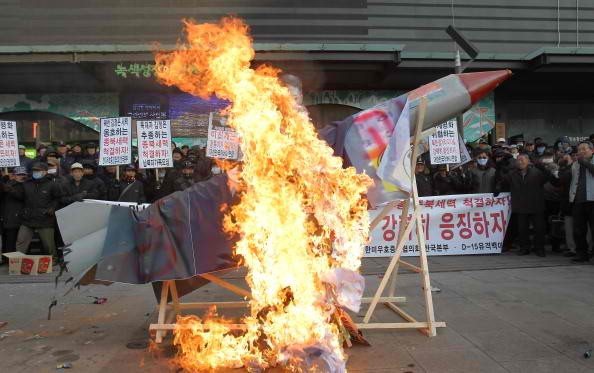Beijing deployed more bombers and put them on high alert, according to U.S.'s national defense department. China later denied the allegations.
In a statement, the Ministry of National Defense said, "The Chinese military at the China-North Korea border is maintaining a normal level of combat readiness and training."
China is asking President Donald Trump to lessen U.S. aggressiveness as strikers are moving closer to the Korean peninsula.
Analysts said China's strategy is to make the U.S. understand the strategic importance in the conflict and the relevance of practicing diplomacy.
John Delury, an associate professor of Chinese studies at Yonsei University, said, "There's a kind of game here where Beijing is playing along to a certain extent, almost to call Trump's bluff, and to get the Americans to recognize they have the key in their hand to unlock the problem."
China is a major player in the North Korean economy. Coal exports from the country have stopped after North Korea conducted more nuclear tests.
However, China wants to prioritize diplomatic dialogue with Pyongyang as a war in the Korean peninsula will have catastrophic effects in the Asian region.
Michael Hirson, Asia director at consulting firm Eurasia Group, said, "I think China is signaling to both sides, to the U.S. that China is doing more, that China is acting in good faith to head off a crisis in North Korea."
He added that China is sending the message that the solution to the nuclear crisis "is one that involves diplomacy and getting North Korea to the table."
However, U.S. Vice President Mike Pence declared that the "strategic patience is over" regarding the conflict with North Korea.
Zha Daojiong, a professor at Peking University's School of International Studies, believes that the economic sanctions being done by China will be enough to pressure the North Korean government to negotiate and follow U.N. rules on nuclear weapons.



























